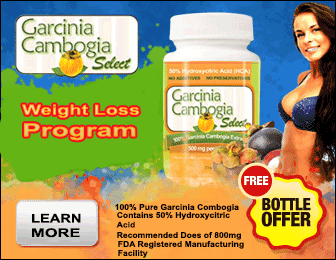1. Water. If you?re thirsty you?re already dehydrated. The majority of us don?t tend to drink enough during the day. If you drink a lot of tea and coffee to keep you going then these have a diuretic effect so you should be drinking water to compensate.
Have a glass of water first thing in the morning and last thing at night ? your body loses a lot of water while you?re asleep ? not only if it?s warm and you sweat a lot but just going 8 hours (if you?re so lucky) without food or drink it?s going to be dehydrated.
Dehydration can also be mistaken for hunger ? have a glass of water first before reaching for a snack or eating a meal.
2. Fruit & Veg. Fruit and vegetables provide you with vitamins, minerals and fibre to help keep your body healthy. Eat a piece of fruit or drink fresh juice for breakfast. Fresh berries on muesli or porridge or cereal. Have fruit as a snack during the day and salad and vegetables with your main meals.
If you can, buy organic and wash fruit and vegetables before eating unless your peeling them. Pesticide residues are more likely to remain on the skin and fruits such as apples are often treated in storage.
3. Avoid processed food. With the increased reliance on ready-prepared meals, take-aways and convenience food to save time there is an increase in the amount of processed food that people eat.
Before you buy that convenience meal ? check the label. How much sugar, salt, hydrogenated fat, E preservatives, colouring does it contain? Because it?s processed ? a lot of the flavour and goodness is lost and has to be added. Because it needs to survive transport, increased shelf-life and cooking fats and preservatives are added. And how much does it really cost. Cooking simple meals such as stir-fries and casseroles are just as convenient and so much better for you.
4. Fresh Juice. One great way to kick-start your day and gently wake up your digestive system is to have a fresh juice every morning. I don?t mean orange juice with your breakfast but fresh vegetable juices. Invest in a good juicer, buy local organic produce and find out how good fresh juice is.
An easy recipe you can have every day is one apple, one carrot (peeled), stick of celery, cube of ginger and thick slice of lemon (remove rind).
5. Fish. Eat fish at least once a week. It contains healthy Omega 3 oils, which are good for your joints, and nerves. Flax and hemp oils offer an alternative for non-fish eaters.
6. Eat regularly. Get into the habit of eating breakfast. Your body has been without food over night ? break the fast with a glass of fresh juice (see above) and then a healthy bowl of cereal, muesli or porridge (avoid those loaded with salt and sugar). Try to eat every 2-3 hours ? little and often ? to avoid your blood sugar levels fluctuating too much. Don?t eat a heavy meal late in the evening. Your body will naturally be slowing down at that time and food eaten late is more likely to be stored as fat.
7. Alcohol. There?s nothing wrong with the odd glass of wine, in fact these days it?s seen to be healthy for the anti-oxidants it contains. Excess alcohol causes your kidneys and liver to work overtime to rid the body of the toxins. Know your limits and drink water to help your body eliminate the toxins.
8. Sugar and Salt. These two ingredients are added to most processed food. They add flavour and act as a preservative but they can be present even in foods you don't expect or are labelled in ways that you don't recognise. Sugar is empty calories, in it's basic form it contains little nutritional value. Natural sugars found in fruits and vegetables are all you need. Avoid adding sugar to food and drinks and avoid synthetic replacements. Watch your salt limits too.
9. Know what you?re eating. Be aware of the food that you?re putting in your body. Read the food labels if you buy tinned, processed produce to be aware of how much salt, sugar and fat is in the food you buy. Buy organic meat whenever possible to avoid the steroids, hormones and anti-biotics that are in factory farmed meat. Know how much sugar, salt and fat you should be eating.
10. Balanced diet. One of the most important ways to improve your eating habits is to have a balanced diet with plenty of fruit and vegetables, whole food, fish and meat, nuts and seeds. Everything in moderation. Keep fatty and sugary foods low but if you enjoy chocolate, cakes and curries there?s nothing wrong with having one once in a while.
If you?d like help in putting some structure in place to organise your health ? contact me through my website.
Clare Evans ? Do more of what you want, less of what you don?t.
http://www.clareevans.co.uk.
Clare is a Personal and Business Coach who works with individuals and small business owners to help them organise their time more effectively and create a better work life balance - enabling them to spend more time doing what they want and less time doing what they don't.
Contact me today to find out how to create balance in your life.
----------------------------------------------------------------
Subscribe to my Free Monthly Newsletter with tips on managing your time more effectively, creating balance, reading and fun.










